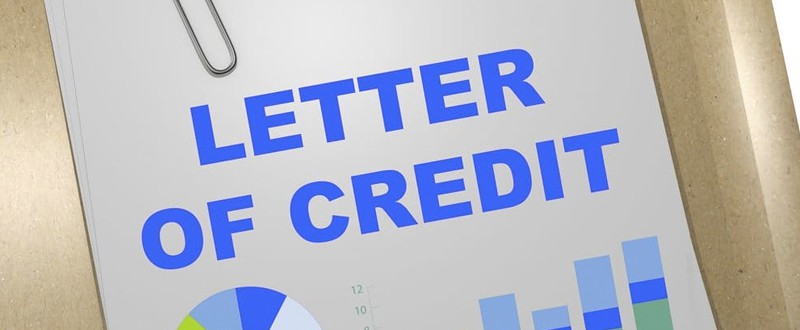Many small and even medium-sized businesses go through most of their life cycles without ever needing a letter of credit from a bank. They have a set of trusted suppliers whom they pay on time following delivery, as specified in an invoice.
Then along comes the big chance they’ve been waiting for: a huge order that will significantly boost their revenues and profits, especially if it becomes a regular thing. Unfortunately, their suppliers are a little nervous about the quantities they are now being asked to deliver… or maybe the lucky business has to take on a new supplier in order to get this big job done on time. Either way, it finds itself in a position of having to guarantee payment before it can get the goods. This is traditionally done by arranging a letter of credit.
What is a Letter of Credit?
A letter of credit is effectively a guarantee by a bank or other financial institution that an order will be paid for. The bank assumes the responsibility to pay should the buyer be incapable of doing so. Naturally, it will charge a substantial fee in order to take on this risk. This can be very frustrating for solvent businesses with healthy cash flow, who see their hard earned profits shaved away by yet more unnecessary financing fees.
Despite this disadvantage, letters of credit are relatively common in international trade, as exporters worry about a distant buyer in a foreign jurisdiction defaulting on payment. For those seeking the advantages of cheaper or more readily available supplies from abroad, therefore, some form of guarantee is essential.
Greasing the wheels of commerce, or spanner in the works?
Letters of credit can help facilitate trade between countries, where otherwise it might not happen because of trust factors. Much like debtor finance or factoring, they grease the wheels of commerce by helping smaller firms to meet large orders which they might otherwise struggle to finance.
On the other hand, the cost is just one of the disadvantages of using a letter of credit. For a start, not everyone can persuade their bank to issue one: the criteria are usually stringent. Then there are the delays caused by the application process and subsequent administration. And finally, letters of credit are usually subject to substantial small print: the exporter will have to prove they have supplied the goods and the whole thing can take time and cost further money if professional advice needs to be sought.
What are the alternatives?
One alternative to the letter of credit is Purchase Order Financing. This process – sometimes linked to factoring – is where a finance company pays an advance on the order on your behalf, on the basis that it will collect the money directly out of your fee for that big order. Variants on this see the supplier paid in full in advance, or simply offered a guarantee.
On the surface it may seem that purchase order (PO) financing is similar to a letter of credit, and of course, it does share some of the disadvantages. However, because PO financing is usually based on the creditworthiness of your ulOptiPayate customer, it can be easier to arrange for companies who do not have a long or stellar credit history themselves.
On the other hand, if a business owner is willing to be creative and think outside the box, he or she may be able to turn the situation with their supplier to advantage: what if they could raise the funds to offer part or full payment, and negotiate a suitable discount in the process?
Tim. has designed a market first whereby little or no cash is required to fund the import and substantial savings from a logistical perspective are created. It’s called Accelerator Plus.
This approach is essentially similar to the premise of OptiPay’s. Accelerator Funding, where cash flow finance pays for itself thanks to the prompt payment discounts that can be negotiated with cash in hand. The same process can be implemented for import and most often on a nil recourse to your business.
If you have invoices outstanding in your ledger, or you raise an invoice to your new customer, then Accelerator Plus could be the perfect way to get your hands on funding that will unlock a big deal and allow your company to move up in the world without having to sacrifice your bottom line.
Have a conversation with a OptiPay trained expert and learn how to import product without the need to find the cash in advance. It is a very smart solution.
Who is OptiPay?
OptiPay, one of Australia’s leading business finance providers, has been dedicated to helping small business owners solve cash flow challenges for over a decade and has provided $1.5 billion in business funding to more than 500 Australian businesses. OptiPay specialises in modern financing solutions such as invoice factoring, invoice finance, debtor finance, and lines of credit. OptiPay’s mission is to support business growth providing liquidity in as little as 24 hours, ensuring they have access to tomorrow’s cash flow today. This rapid access to funds helps businesses maintain smooth operations and seize growth opportunities without the stress of cash flow constraints. At OptiPay, we believe that healthy cash flow is the lifeblood of any successful business. Our commitment to helping businesses overcome financial hurdles and achieve their growth ambitions has solidified our reputation as a trusted partner in the business finance sector. Whether you are looking to stabilise your cash flow, expand your operations, or navigate financial challenges, OptiPay is here to support your journey with innovative and efficient financing solutions.



